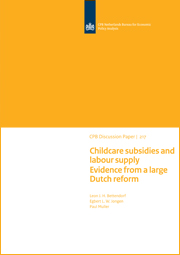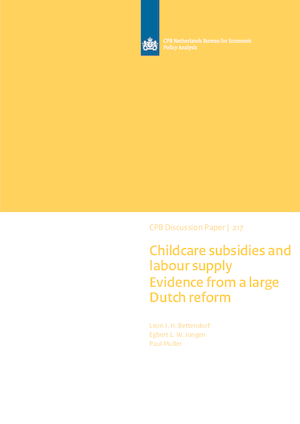September 11, 2012
Childcare subsidies and labour supply: evidence from a large Dutch reform
Over the period 2005-2009 the Dutch government increased childcare subsidies substantially, reducing the average effective parental fee by 50%, and extended subsidies to so-called guestparent care. We estimate the labour supply effect of this reform with a difference-in-differences strategy, using parents with older children as a control group.

We find that the reform had a moderately sized impact on labour supply. Furthermore, the effects are an upper bound since there was also an increase in an earned income tax credit for the same treatment group over the same period. The joint reform increased the maternal employment rate by 2.3%-points (3.0%). Average hours worked by mothers increased by 1.1 hours per week (6.2%). Decomposing the hours effect we find that most of the increase in hours is due to the intensive margin response. A number of robustness checks confirm our results.

